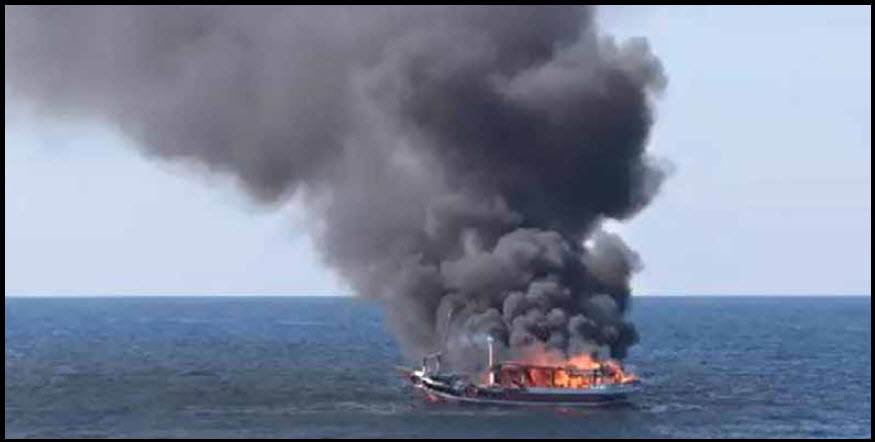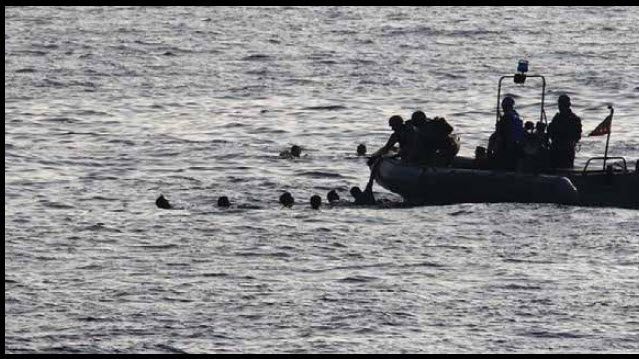 By: Ali Elizabeth Turner
By: Ali Elizabeth Turner
When you have had the chance to live amongst soldiers in a combat zone, one of the most interesting and gratifying parts of such an experience is to observe first hand the combination of toughness and tenderness that is a part of our military’s “working philosophy,” if you will.
Rarely has that combo been more clearly on display than a few days ago when the U.S. Navy encountered a fishing vessel that was ablaze in the Gulf of Oman. The crew was floundering about in the water, and not only did the Navy rescue the crew, they put out the blaze before the vessel sank. Aahhh, but here is where the plot thickens. The ship was not on fire because of trouble in the engine room or a short in the wiring, it was the crew themselves that had torched it before they jumped in the drink. Why? Well, they happened to be carrying what ended up being more than one million dollars worth of hashish and methamphetamines, and rather than emit the classic cry from decades ago of “Eat the dope,” the Pakistani and Iranian smugglers somehow hollered, “Burn the dope,” (and ditch the boat.) They succeeded in getting rid of about one-third of it, and God only knows what kind of contact high was occurring as the boat burned.

What did our sailors do? They fished them out of the drink, gave them medical care, and then they put in motion what tongue-in-cheek-and-mil-speak was referred to as “repatriation.” Now, I am not going to jump to conclusions (or into the drink,) but does that sound like, wait for it, “catch and release?” (My father and husband would be proud of such a pun.)
Below is a statement released about the incident, and I especially love the use of the term “disrupt destabilizing maritime activity.”
This was a superb effort by all of our crews,” said Vice Adm. Brad Cooper, commander of U.S. Naval Forces Central Command, U.S. 5th Fleet and Combined Maritime Forces. “I couldn’t be prouder of everyone involved in saving lives while carrying out our mission to disrupt destabilizing maritime activity.
OK, I admit I wasn’t there and that several details are probably not available for consumption by the average bear. But there is something here that makes me scratch my head with the use of the term “repatriation.” These guys fessed up to what they were doing, and anything else would have been folly, seeing as the drugs were seized. This would not have been the time to claim the drugs had been planted in the trunk or the glove compartment. But, repatriation? Does that mean that they were transported back to Iran or Pakistan so they could do the same thing all over again? This is not the first time that the US Navy has been involved in such an incident. Last year, the Sirocco, one of the three vessels involved in rescuing the Pakistanis and Iranians, did the same thing for Iranians in the same gulf (Oman) smuggling the same kinds of drugs (hash and meth), and that time the haul was worth 14 million dollars.
So, is it too cheeky for me to ask, “You guys come here often?” Whatever that answer may be, our sailors most certainly did the opposite of what would have been the case if the situation had been reversed. And that makes me proud, even if “repatriation” makes me suspect.
By: Ali Elizabeth Turner









 June 20, 2025
June 20, 2025



